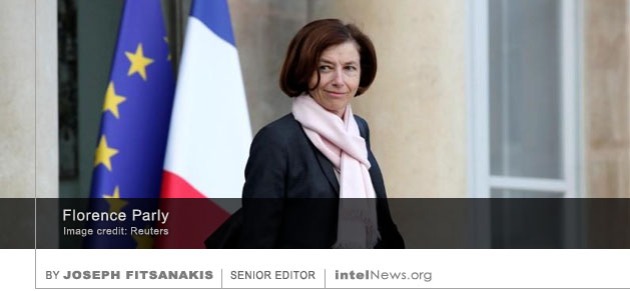French prosecutors seek trial in high-stakes case involving ex-spy chief
January 6, 2023 1 Comment
 PROSECUTORS IN FRANCE HAVE asked for a trial in a high-profile case involving the former head of France’s domestic intelligence agency, a former senior Paris police official and a retired appeals court judge, among others. The decade-long case has become known in France as the “Squarcini affair”, after Bernard Squarcini, who headed France’s General Directorate for Internal Security (DGSI) from 2008 to 2012.
PROSECUTORS IN FRANCE HAVE asked for a trial in a high-profile case involving the former head of France’s domestic intelligence agency, a former senior Paris police official and a retired appeals court judge, among others. The decade-long case has become known in France as the “Squarcini affair”, after Bernard Squarcini, who headed France’s General Directorate for Internal Security (DGSI) from 2008 to 2012.
Squarcini is a former career intelligence official, who rose through the ranks to head the Directorate of Territorial Surveillance (DST) of the French National Police. In 2008, the DST merged with the Central Directorate of General Intelligence (RG) of the French National Police, thus creating the new DGSI. Squarcini served as the first director of the DGSI until 2012, when he was dismissed by France’s socialist president, François Hollande, once the latter assumed the French presidency. It is believed that Hollande saw Squarcini as being politically aligned with Hollande’s center-right predecessor, Nicolas Sarkozy.
Upon his dismissal, Squarcini founded Kyrnos, a consulting company offering intelligence services to private-sector clients. Among Kyrnos’ largest clients was Louis Vuitton Moët Hennessy (LVMH), a Paris-based conglomerate, whose holdings include several dozen subsidiaries, among them highly prestigious brands like Louis Vuitton, Hennessy, Tiffany & Co., Christian Dior, Bulgari, and others. LVMH’s CEO and “public face” is Bernard Arnault, who is currently estimated to be the world’s richest individual by Fortune magazine.
In 2021, LVMH paid a $11.2 million fine to settle allegations that the firm hired Squarcini to acquire confidential documents relating to government investigations into several rival firms, and to spy on private individuals on behalf of LVMH. Lawyers involved in the case hailed the decision at the time as “a decisive step […] in an unparalleled case that shows how [the] intelligence services have been used for private ends”.
But the 2021 case gave birth to a series of follow-up investigations, once Squarcini’s list of surveillance targets became known. Among those targets was Francois Ruffin, a leftwing labor activist and documentary producer, who was investigating LVMH’s financial dealings for a film he was producing. Squarcini is a leading suspect in this new round of investigations, as are other former senior government officials, including a senior officer in the French National Police and a former appeals court judge.
The accused face a host of charges, among them conspiracy to defraud clients, receiving payments by private firms to influence government policies, and breaching secrecy and professional codes associated with being a civil servant. Now the French news agency Agence France Presse reports that the team of prosecutors in charge of this new round of investigations have asked the presiding judges to order a trial of the suspects. This means that the prosecutors believe they have amassed enough evidence to convict the suspects of the charges levied against them.
► Author: Joseph Fitsanakis | Date: 06 January 2023 | Permalink
 French authorities are reportedly investigating a senior military officer, who is serving with the North Atlantic Treaty Organization in Italy, for spying on behalf of Russia, according to a news report from France. On Sunday, France’s Minister of the Armed Forces, Florence Parly (pictured), gave a press conference in Paris, during which she provided limited information about the ongoing investigation. Parly
French authorities are reportedly investigating a senior military officer, who is serving with the North Atlantic Treaty Organization in Italy, for spying on behalf of Russia, according to a news report from France. On Sunday, France’s Minister of the Armed Forces, Florence Parly (pictured), gave a press conference in Paris, during which she provided limited information about the ongoing investigation. Parly  A senior civil servant in the upper house of the French parliament has been arrested on suspicion of spying for North Korea, according to prosecutors. The news of the suspected spy’s arrest was first
A senior civil servant in the upper house of the French parliament has been arrested on suspicion of spying for North Korea, according to prosecutors. The news of the suspected spy’s arrest was first  Authorities in France have announced the arrest of six individuals who were allegedly involved in a plot to kill French President Emmanuel Macron. Government prosecutors said on Tuesday that the six were arrested for planning “a violent action against the president of the Republic”. A former economy and industry minister, Macron resigned from the cabinet of left-of-center Prime Minister Manuel Valls in 2016 in order to lead a new right-of-center movement called En marche (Forward). In 2017 he won the presidential election with 66.1 percent, becoming the youngest president in the history of France.
Authorities in France have announced the arrest of six individuals who were allegedly involved in a plot to kill French President Emmanuel Macron. Government prosecutors said on Tuesday that the six were arrested for planning “a violent action against the president of the Republic”. A former economy and industry minister, Macron resigned from the cabinet of left-of-center Prime Minister Manuel Valls in 2016 in order to lead a new right-of-center movement called En marche (Forward). In 2017 he won the presidential election with 66.1 percent, becoming the youngest president in the history of France. A French government report warns of an “unprecedented threat” to security after nearly 4,000 leading French civil servants, scientists and senior executives were found to have been accosted by Chinese spies using the popular social media network LinkedIn. The report was authored by France’s main intelligence agencies, the General Directorate for Internal Security (DGSI) and the General Directorate for External Security (DGSE). According to the Paris-based Le Figaro newspaper, which
A French government report warns of an “unprecedented threat” to security after nearly 4,000 leading French civil servants, scientists and senior executives were found to have been accosted by Chinese spies using the popular social media network LinkedIn. The report was authored by France’s main intelligence agencies, the General Directorate for Internal Security (DGSI) and the General Directorate for External Security (DGSE). According to the Paris-based Le Figaro newspaper, which 





